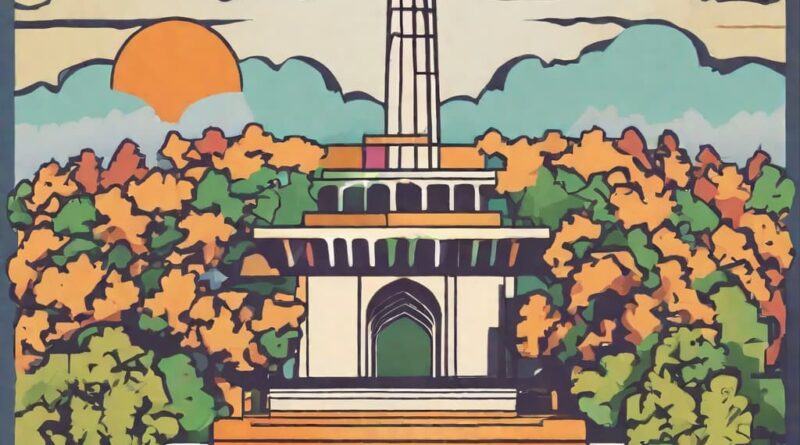Chandigarh Mayoral Election 2024: Controversy Clouds Victory as Court Considers Challenges
Did victory in Chandigarh’s mayoral election come at the cost of democracy? BJP’s Sonkar celebrates, but accusations of vote tampering & court challenge cloud his win. AAP-Congress cries foul, demanding a re-election. Will the High Court uphold the result or overturn it? Dive into the controversy & its potential impact on India’s upcoming national elections.
The Chandigarh mayoral election of 2024, held on January 30th, has become a flashpoint of controversy, raising concerns about the integrity of the electoral process and casting a shadow over the upcoming national elections. While Bharatiya Janata Party (BJP) candidate Manoj Sonkar emerged victorious with 16 votes, the legitimacy of his win is under scrutiny due to the invalidation of eight votes cast by nominated councillors and subsequent legal challenges.
The Chandigarh mayoral election on January 30th, 2024, has become a political storm centre, raising concerns about electoral fairness and casting a shadow over the upcoming national elections.
The Contenders and the Race:
- BJP: Manoj Sonkar, a councillor from the Bharatiya Janata Party (BJP), emerged as the victor with 16 votes.
- AAP-Congress Alliance: Kuldeep Singh, a joint candidate from the Aam Aadmi Party (AAP) and Congress party, secured 12 votes.
- Nominated Councillors: Eight nominated councillors held the potential to swing the election.
A Contested Election:
The election pitted the BJP against an alliance of the Aam Aadmi Party (AAP) and the Congress party, known as the INDIA bloc. Both sides campaigned heavily, with the INDIA bloc hoping to capitalize on their recent electoral success in the state. However, the close contest took a dramatic turn when the returning officer, Anil Masih (a former BJP member), declared eight votes from nominated councillors invalid, citing technicalities. This decision proved crucial, pushing the BJP candidate, Sonkar, ahead with 16 votes, while the INDIA bloc candidate, Kuldeep Kumar, was left with 12.
From Alliances to Accusations:
The election pitted the Bharatiya Janata Party (BJP) candidate, Manoj Sonkar, against Kuldeep Kumar, a joint nominee of the Aam Aadmi Party (AAP) and the Congress, forming the ‘INDIA bloc’. The race was expected to be close, with both sides garnering strong support.
A Narrow Victory, But Was it Fair?
Sonkar emerged victorious with 16 votes against Kumar’s 12. However, the result hinged on a crucial decision by the returning officer, Anil Masih, a former BJP member. He declared eight votes cast by nominated councillors invalid, all allegedly belonging to the INDIA bloc. This significantly impacted the outcome, raising immediate accusations of bias and manipulation.
Allegations and Outrage:
The AAP and Congress vehemently condemned the result, alleging foul play and demanding a re-election. They released video footage purportedly showing Masih mishandling the ballots, further fueling their claims. This sparked heated protests and accusations of the BJP attempting a “power grab” through unfair means.
Seeking Justice in Court:
The INDIA bloc approached the Punjab and Haryana High Court, challenging the returning officer’s decision and the validity of the election itself. The court issued notices to the Chandigarh administration and Masih but declined to stay the result immediately. A hearing is scheduled for February 14th, 2024, where the court will weigh the allegations and decide the election’s fate.
A Cloud over Democracy:
The controversy has sparked nationwide debate, raising concerns about the impartiality of electoral processes in India. The potential for political influence and manipulation has come under intense scrutiny, casting a shadow over the upcoming national elections scheduled for later this year.
Current Situation:
As of today, February 1st, 2024, Manoj Sonkar remains the officially declared Mayor of Chandigarh. However, the court’s decision on the 14th holds the potential to overturn the result or order a re-election, making the city’s political landscape highly volatile.
Beyond the Local:
The Chandigarh mayoral election has transcended local significance, symbolising broader anxieties about the upcoming national elections in 2024. The controversy has fueled concerns about the potential for manipulating the electoral process and the influence of money and power in Indian politics. The High Court’s verdict and the subsequent developments in the case will be closely watched, not just in Chandigarh but across the nation.
Key points about the Chandigarh mayoral election controversy:
- The BJP candidate, Manoj Sonkar, won the election with 16 votes, while the AAP-Congress alliance candidate, Kuldeep Kumar, received 12 votes.
- Eight votes cast by nominated councillors were declared invalid by the returning officer, Anil Masih, who is a former president of the BJP’s minority front. This decision played a crucial role in the outcome of the election.
- The AAP and Congress have accused the BJP of manipulating the election and demanded a re-election. They have also filed a petition in the High Court challenging the returning officer’s decision.
- The BJP has denied any wrongdoing and defended the returning officer’s decision. They argue that the votes were invalidated due to technicalities and that the election was conducted fairly.
- This controversy has raised concerns about the impartiality of the electoral process in India and the potential for manipulation. It has also sparked debate about the role of money and power in Indian politics.
The BJP has defended the election’s fairness and Masih’s decision, claiming the invalidated votes had technical issues. The opposition parties have highlighted Masih’s political background and alleged lack of transparency in the vote-counting process. The controversy has become a focal point in the run-up to the 2024 national elections, raising concerns about the potential for similar tactics to be employed.
This story represents the current events surrounding the Chandigarh mayoral election, objectively presenting the facts and ongoing legal proceedings without expressing any personal opinions or biases.

